
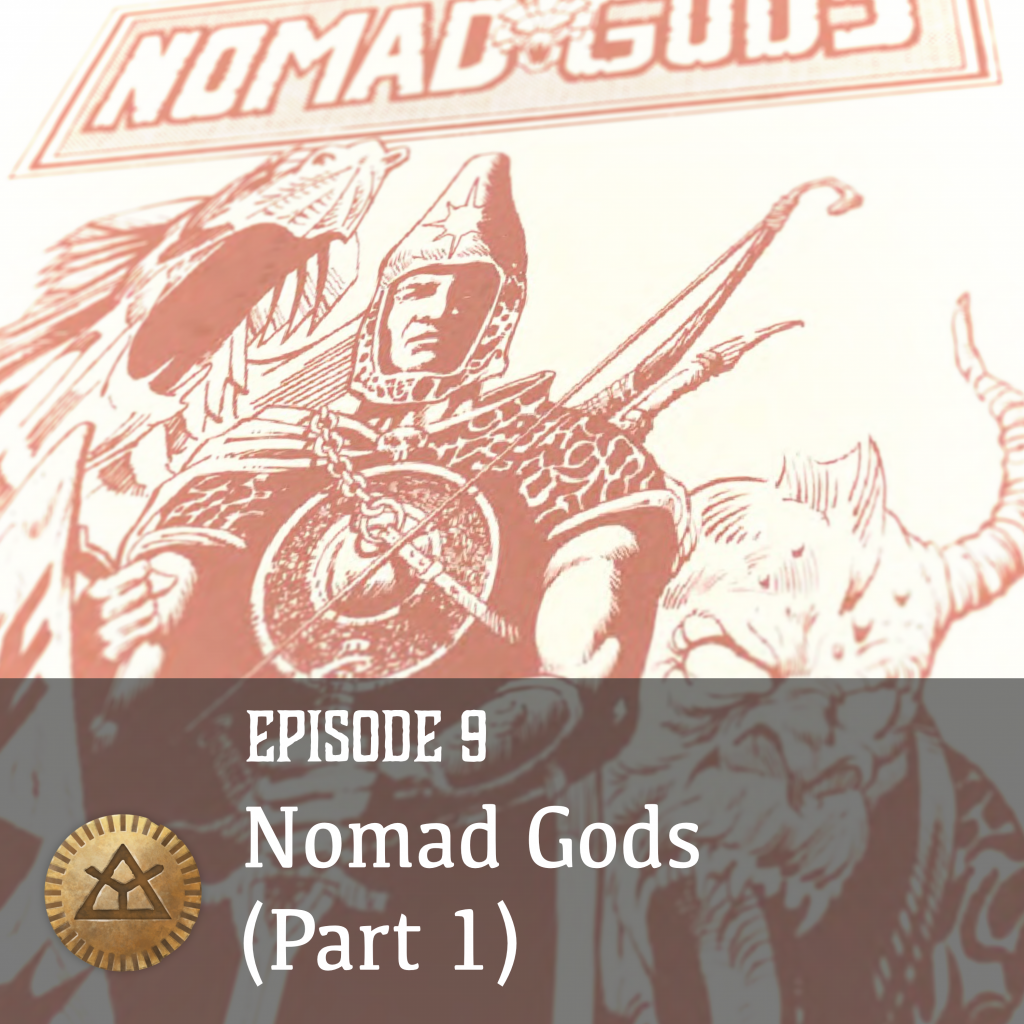
We apologize for the tardiness on this episode: we are not used to Earth’s weird calendar where one month is surprisingly shorter than the others. Plus, Ludovic was busy with work and with writing two convention scenarios for ChaosiumCon. It also didn’t help that this episode was a lot heavier on the editing than usual.
Without further excuses, this month we welcomed Chaosium’s David Scott again. This time he was present wearing his “Prax expert” hat in order to chat about Nomad Gods, the 1977 board game designed by Greg Stafford.
News
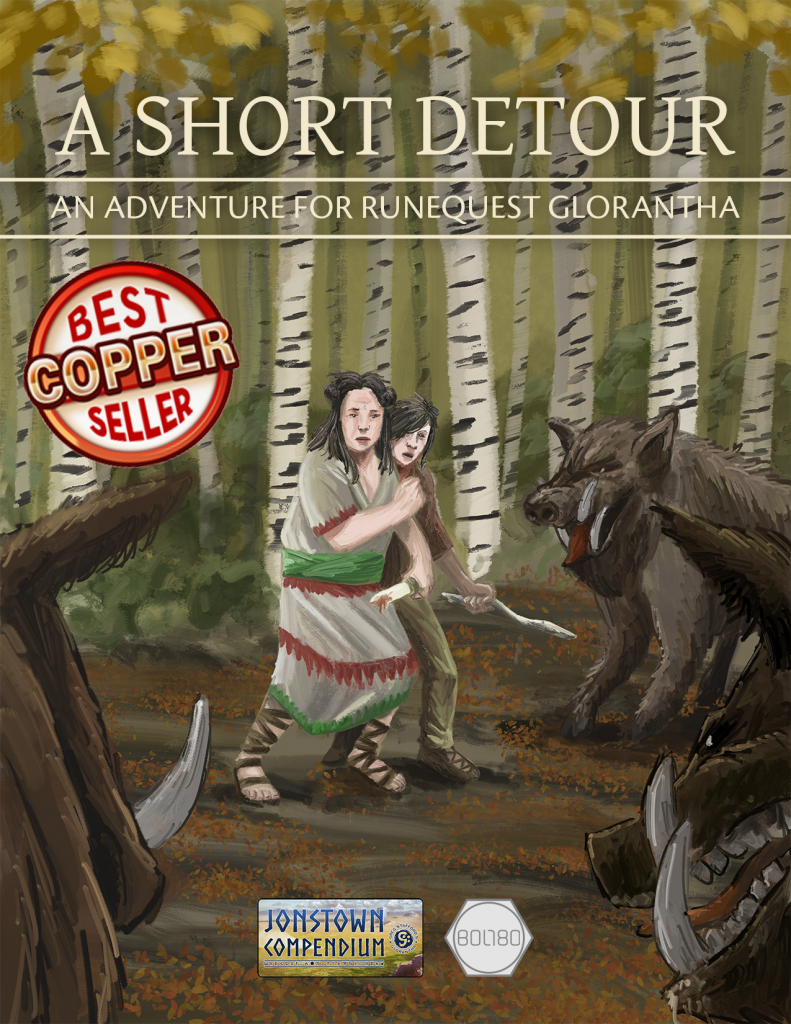
In news, Ludovic mentions that his first Jonstown Compendium item it out. A Short Detour is a RuneQuest adventure with a complex moral dilemma, and a (hopefully) insightful appendix on everybody’s favourite Gloranthan power.
As always we also mention the Journal of Runic Studies, our weekly newsletter of Gloranthan news. If you’re not subscribed by email or RSS, do it now!
Joerg gives a shout out to other podcasts and streams:
- The Exploring Glorantha videos from Evan and JM (which Joerg incorrectly credits as “JD”… sorry JM!), including this interview of Rick Meints.
- The Vintage RPG podcast’s episode on RuneQuest.
- Chaosium’s official RuneQuest Starter Stream, which is up to its third episode at the time of writing.
Ludo mentions that his French edition of RuneQuest has arrived (you can read and see more about it here). After fumbling around to remember the name of the artist who did the French slipcase art (it’s Joann Sfar), David takes us in a tangent about foreign RuneQuest editions’ art, starting with Oriflam’s cover for Dorastor:
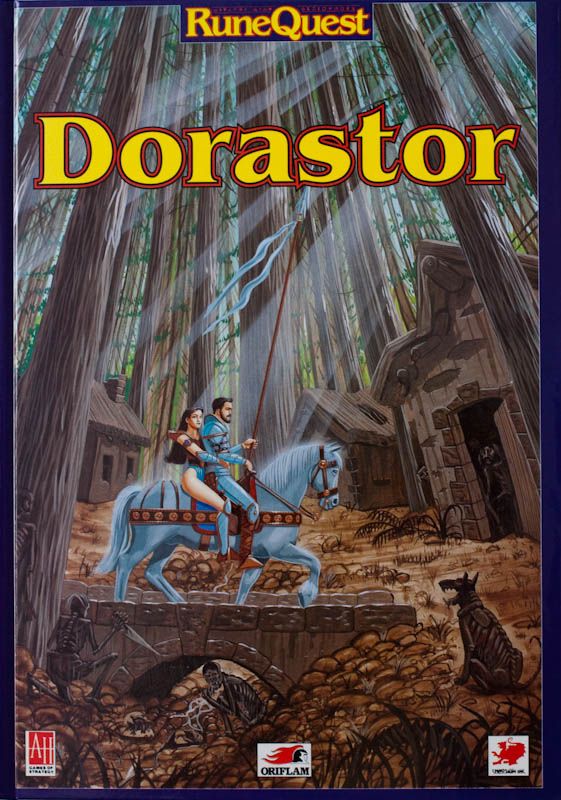
Once again, we have difficulty to remember the name of the artist (it’s Hubert de Lartigue). There’s more information on the Well of Daliath.
Joerg also mentions the German art for Apple Lane:
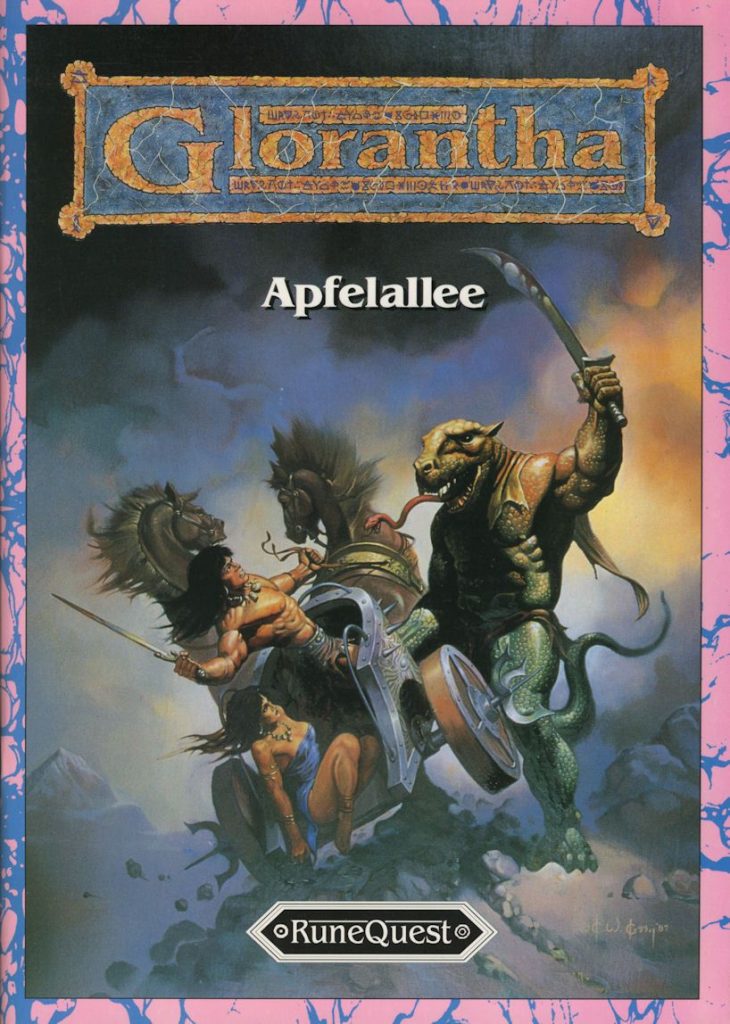
Speaking of the Well of Daliath, our tangent takes us to another tangent to celebrate this very useful resource for Gloranthaphiles. David Scott is the principal maintainer, but receives help from volunteers. We discuss how the timeline of Dragon Pass and the Prosopaedia are Ludovic’s most frequently visited pages.
Main Topic: Nomad Gods
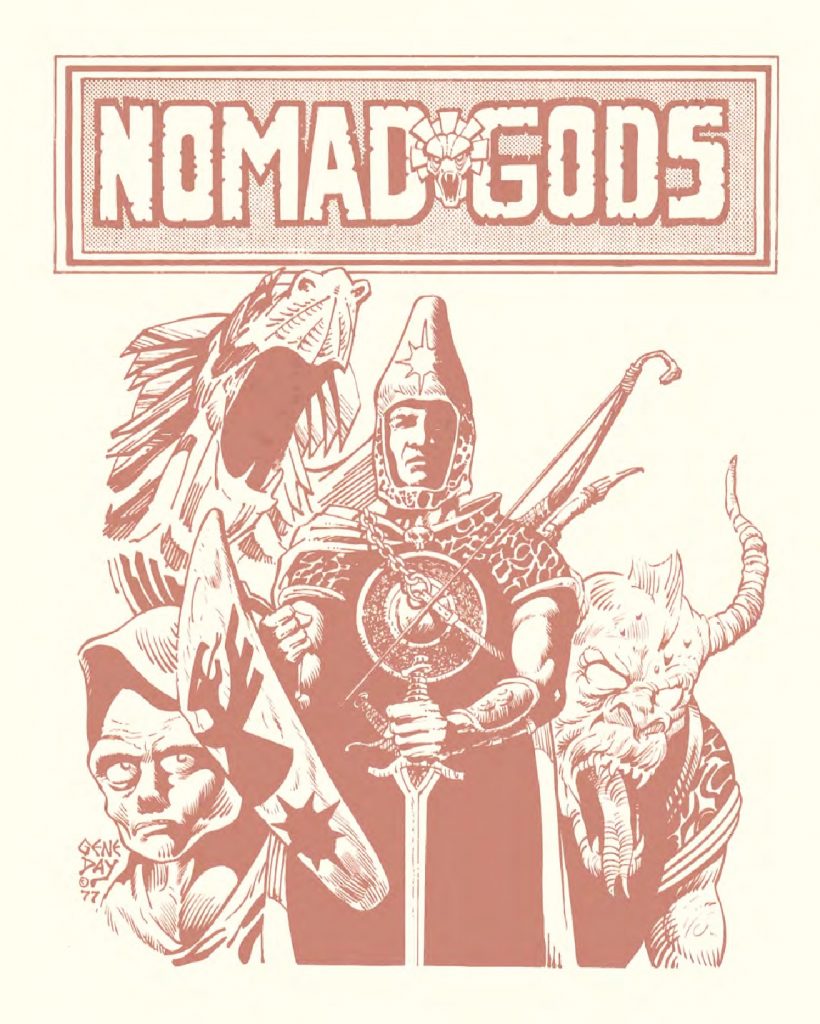
We start talking about Nomad Gods, as promised. To follow along, listeners who aren’t rich or old enough to own the game can purchase the PDF of the rules booklet from Chaosium for a bit less that $9.
Many pictures (including pictures of the board and the counters) are available on the BoardGameGeek page for Nomad Gods.
Assuming you have the rules (or make them up), you can also play Nomad Gods on Vassal, using the appropriate module. There’s also a module for Dragon Pass.
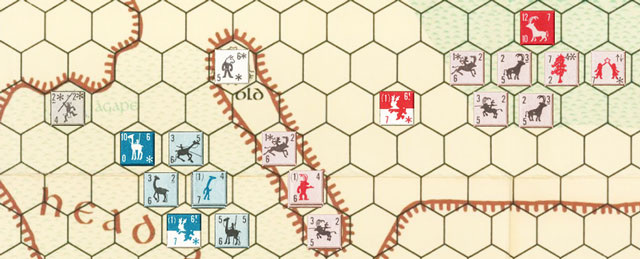
David runs us through the process of extracting the map and counters art from the module file, which is a simple ZIP file with a different extension.
Here’s the map of Nomad Gods:
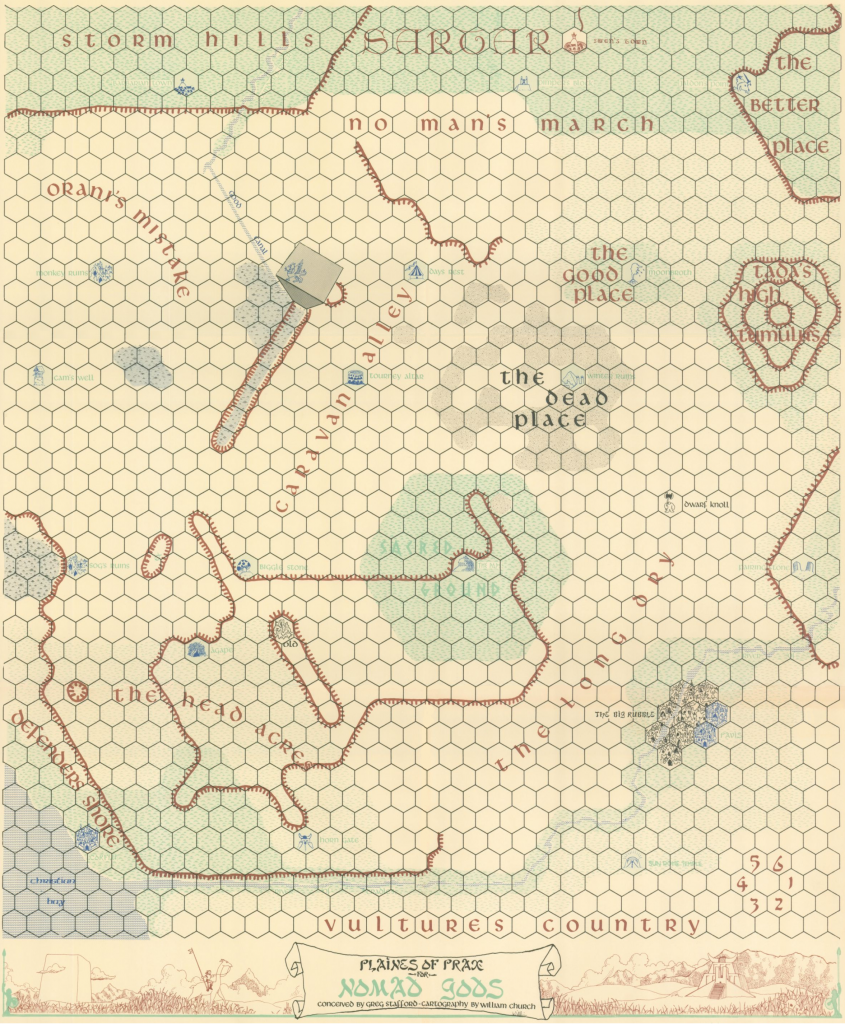
Then we start looking at the art on the counters. David shares some photos of early prototype counters:
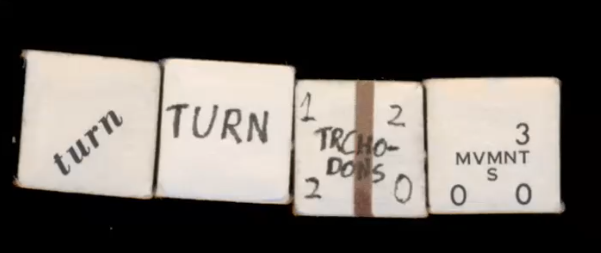
And then we look at some pre-production chits of the alchemical transformer (left) and Jar-eel (right).
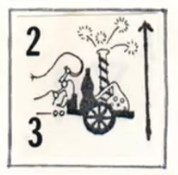

We can’t show the assembly boards with chits on grid paper, or lunar units with the red filter sheet taped over them, but you can probably imagine how, errr, “crafty” it looks like. The result can be seen below in the finished product, and it looks similar to how most other wargames of the time looked like, as far as I can tell:
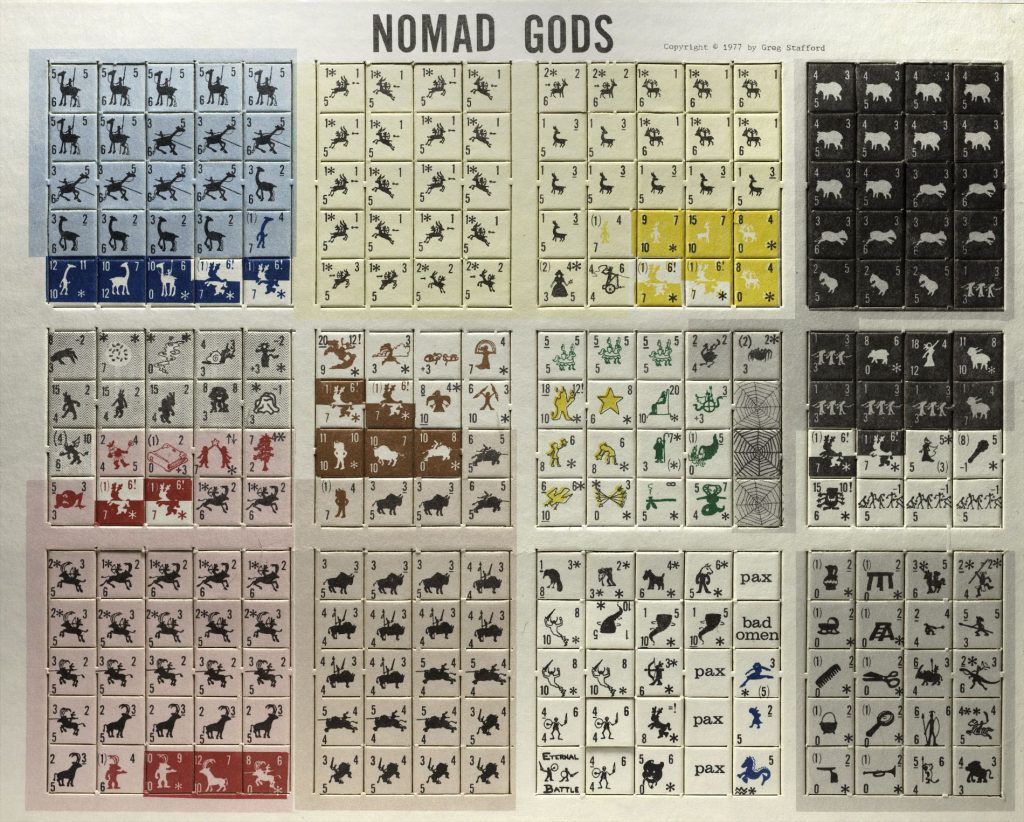
Next, David talks how Greg was still “exploring” Glorantha at the time, with many names just thrown on the map as nods to his friends (refer to the map above). These locations were only further developed when there was a roleplaying game to do that, and this of course happened with RuneQuest and Cults of Prax. The sound you hear at this point is David unfolding and re-folding his Nomad Gods map!
Where did names like Orlanth came from? Where did the many places in Prax come from? We don’t know. The creative process is a mysterious thing.
David recalls how “amazing” these 1970s wargames looked like: they came in ziploc bag, as shown below:
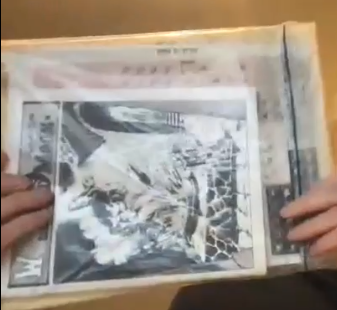
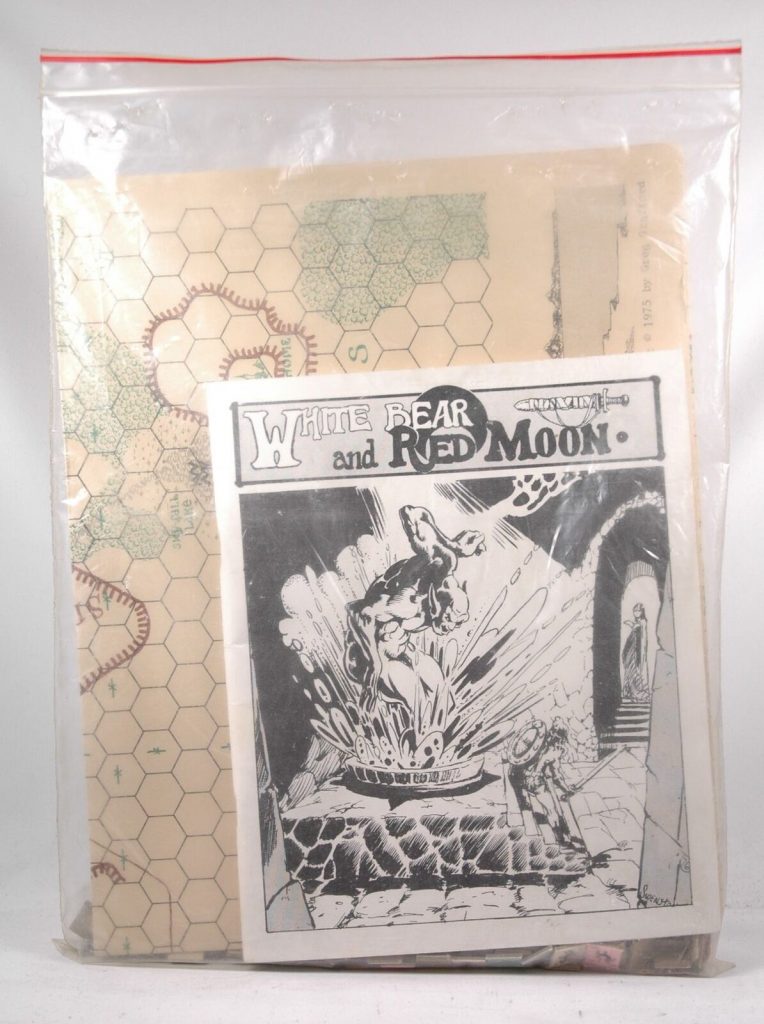
David talks to us about his first fantasy board game, Divine Right, from TSR.
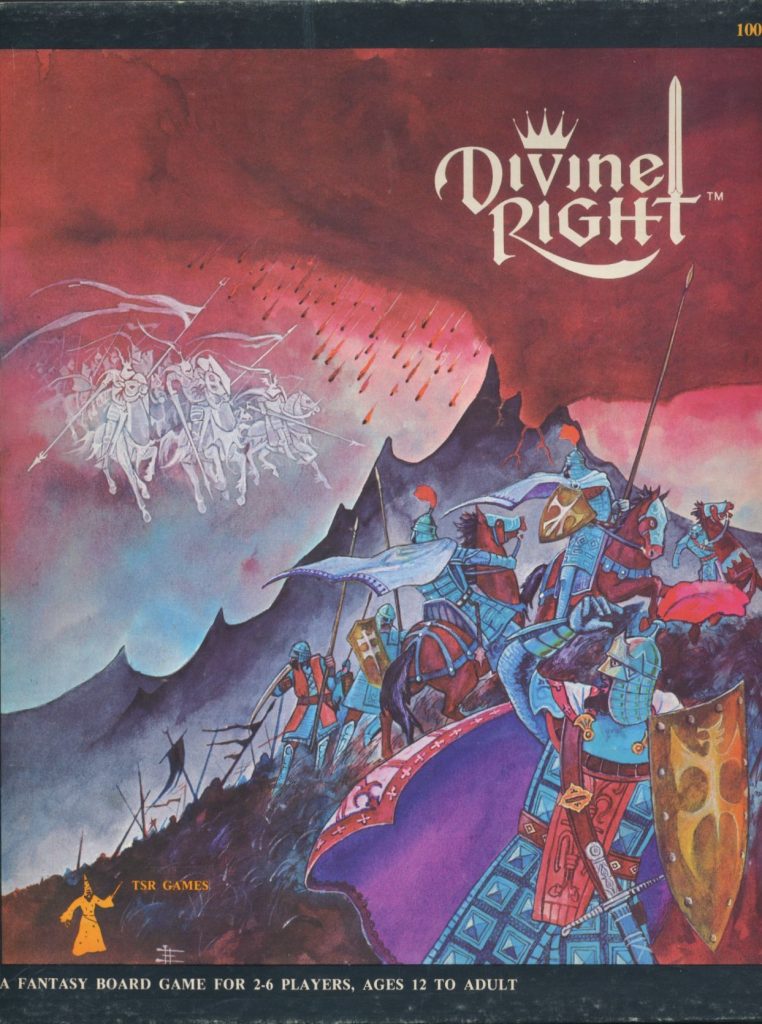
The game map looks very much like the Dragon Pass map:
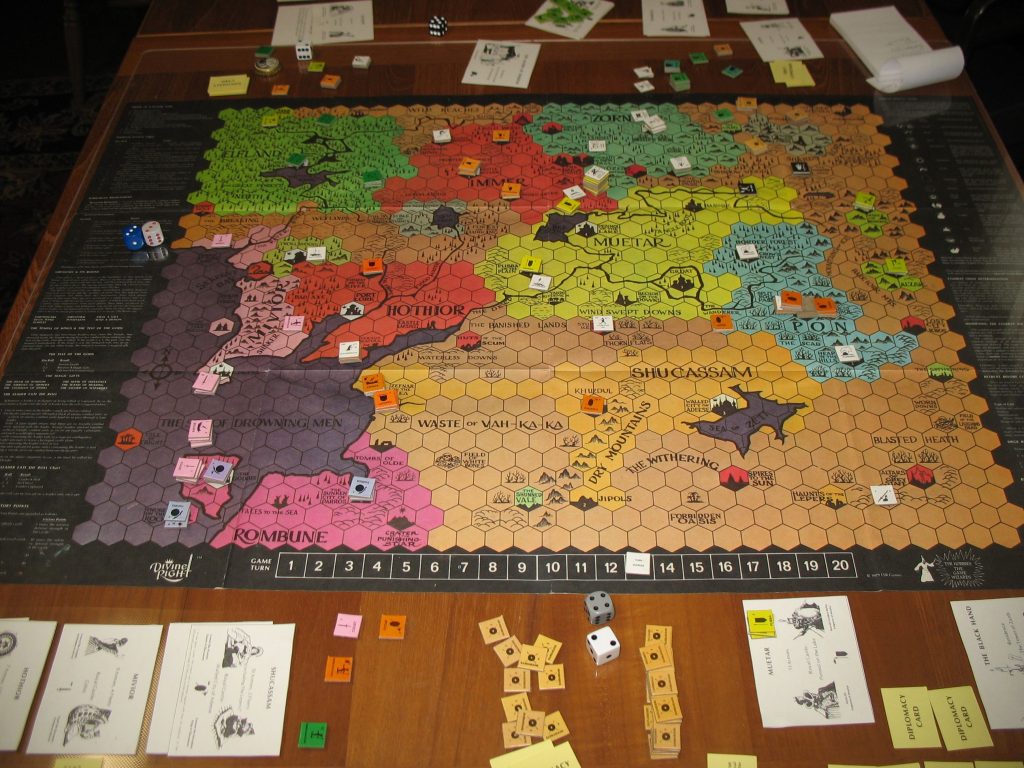
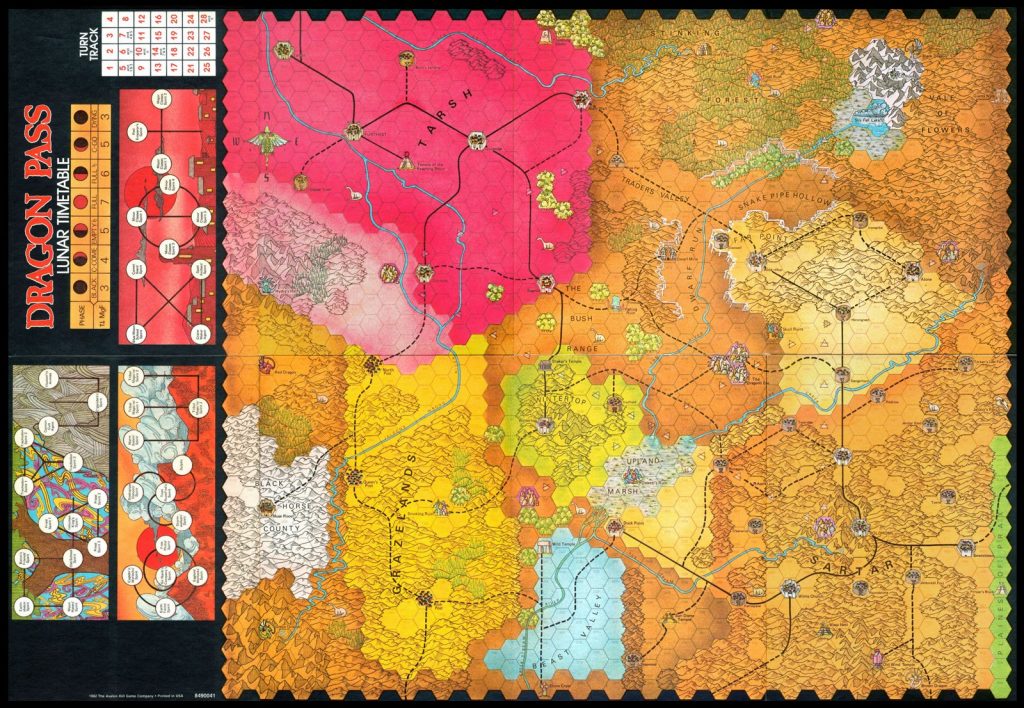
Some of the setting lore in Divine Right (sorry about the blurry Zoom screenshot):
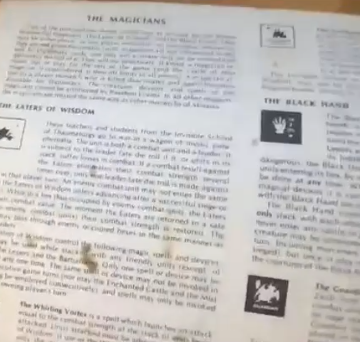
Divine Right’s NPC cards look like this, with the random cards to apply to them:
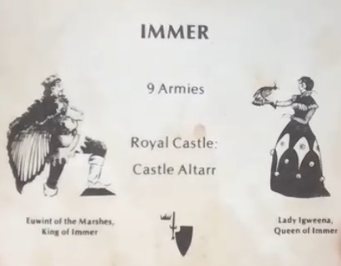
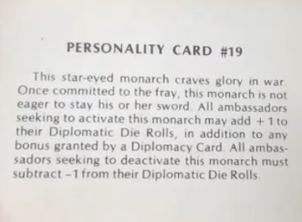
We finally start looking at the Nomad Gods booklet. David runs us through the names in the credits (and how they’re tied to Glorantha).
Joerg and David talk about the difference of rules between the editions. Ludo asks about the spelling of “Plaines of Prax”, or the reason for making the map sideways (with North pointing to the right)… apparently we don’t know!
We talk about the mythology and history of Prax, as presented by the rulebook, and how it’s still guiding the design of Prax nowadays.
There was supposed to be a third board game (advertised in the Nomad Gods booklet!) but this third game never happened. David shares anecdotes about it, and mentions Greg’s Holy Country game, which explored the themes of that unpublished game.
We look at the art pieces found across the pages. The cover can be seen above at the start of this chapter of the show notes. The Zebra Riders and the big battle spread are shown below:
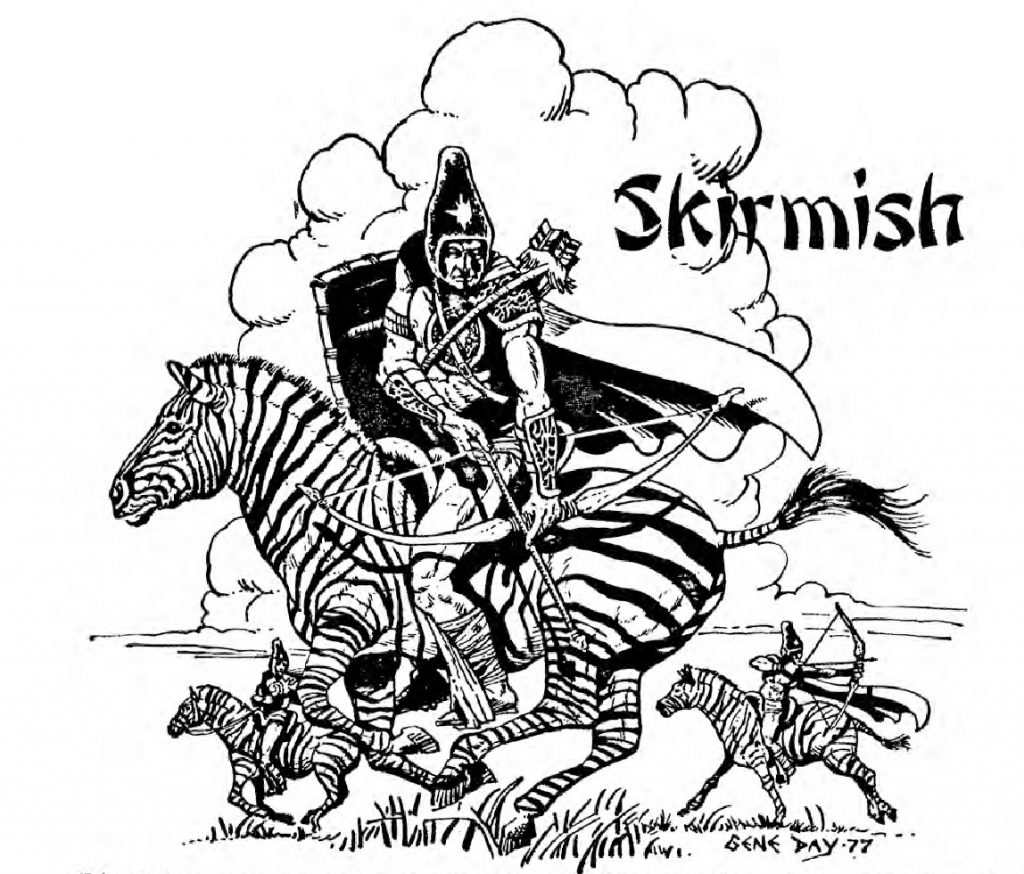
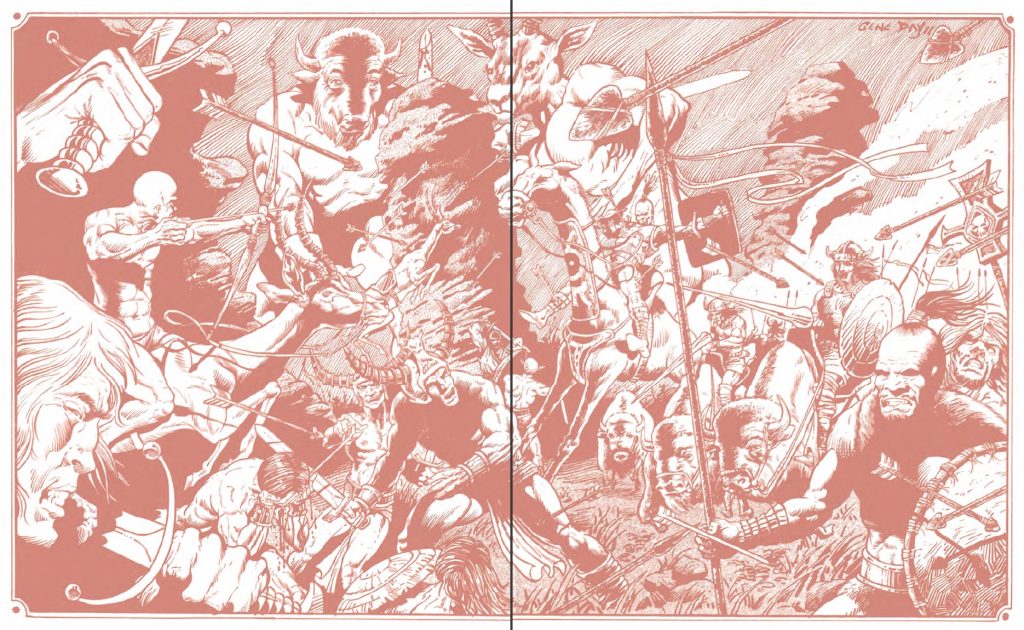
For the weird-looking sci-fi picture of Argrath, the greek-inspired Ronance, and other illustrations we talk about, you’ll have to get the PDF of Nomad Gods! Nomad Gods is where we get many first looks at things like the Devil, Broos, Dragonsnails, and more.
Ludo talks about using board game rules, scenarios, and events as ideas for RPGs. This sends us on a tangent about Jaldon Toothmaker, one of the main figures of the board game. Did he really gnaw through the walls of Pavis? David has a theory.
Nomad Gods has a big recurring theme of dead gods and heroes who can be called back when the Praxian tribes need them.
Unlike White Bear & Red Moon (and Dragon Pass) where you play the Hero Wars, Nomad Gods has a more artificial setup, where you play practice drills, tournaments, and such.
Moving on to the counters’ stats, Ludo mentions how some of these can be used to drive faction play or tribal history, but David says those stats are probably defined like that only for game balance.
The hexes on the map have different properties in terms of resources, from the fertile grounds of the Paps to the desert of the Dead Place. We also go through the landmarks, and how they are represented on the board, compared to what we now know of them.
As we look at the five major tribes of Prax, our discussion goes into the matter of the Covenant, and what little we really know about it. We debate whether the Morokanth are omnivores or mostly vegetarians. Ludo’s Glorantha seems to align with Sandy Petersen’s on that topic, but Chaosium is going with Greg Stafford’s wishes. David explains why, and what it means for the Morokanths’ role in Prax.
Speaking of Morokanths, David talks about the Most Respected Elder, the current of which is a Morokanth. David explains how to run games that really make use of the nomadic lifestyle. Joerg asks how to include the Eternal Battle to life in Prax.
David starts talking about spirit cults and theism in Prax, and how Praxian mounts really survive on the chaparral: it’s a secret that’s not written down anywhere but Greg told David, and David now tells us! (although he has shared it on forums before so it’s not exclusive)
Ludo asks about the Zebra Riders. David gives a not-so-short version. He also explains the cycle of representation of tribes in the Most Respected Elder position. Then, as we look at the other “independent tribes” of Prax, David reminds us that apart from the Rhino Riders, all these tribes are pretty tiny. Ludo mentions the Cannibal Cult, and David gives the actually-short version of what they are.
As we reach the beginning of the “Magic Game” section, Ludo tries to wrap up the episode but fails utterly. We launch into a discussion of Sartarite games vs Praxian games, and what the role of Praxians is in the Hero Wars. We share some ideas for Praxian campaign frameworks, and David talks about the “big events” that could happen there. Eventually, Ludo manages to wrap up the episode for good.
Credits
The intro music is “The Warbird” by Try-Tachion. Other music includes “Cinder and Smoke” and “Skyspeak“, along with audio from the FreeSound library.